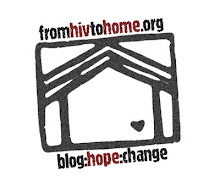
Well, I can see already that I should have done this post a little earlier today and the blog is getting quite a few visitors. Please let me know what you think about the concept and if you would like to participate. The purpose here is to support international adoption and provide up to date information as soon as possible. If you have an article or news that you think would help other families, please feel free to contact me and I'll get it on the blog.
I am having sidebar links made for participating familes. If you would like one, please leave a comment and your e-mail address and I will get it out to you as soon as they are created.
We do have a glitch with the comments, you have to click on the divider graphic...we'll get that fixed : )
Thank you!
Welcome to No Place Like Home.
Saturday, May 31, 2008
Day One...
China Quake Orphans
| ||||||||||
"There's lots of interest," says Joshua Zhong, co-founder of Chinese Children Adoption International, one of the largest China-only agencies in the USA.
He says inquiries have more than tripled since the May 12 quake, which has killed at least 68,109 people and left an estimated 4,000 children without parents.
Zhong's agency and others, however, are trying to lower callers' expectations. They cite two reasons: Many of the children may not be orphans once parents or other relatives are found, and more Chinese people are adopting
children.
"We intend to give priority to domestic adoption … over overseas adoptions," says Wang Suying, a senior adoption official at China's Ministry of Civil Affairs.
As in the USA, phone lines are humming in Beijing as people inquire about adopting quake victims. Wang says the high call volume reflects the growing acceptance of adoption in China, where it was once taboo. "Every year there are more and more domestic adoptions," Wang says.
That interest, along with a strong economy that makes it easier to support children, has meant fewer Chinese orphans are available for international adoption.
Last May, China tightened its eligibility rules, barring foreign applicants who are single, gay, obese, older than 50, low-income or have a history of mental illness.
China had been the No. 1 foreign country for adoptions by people in the USA since 2000. Now it is sending fewer orphans: 5,453 in 2007, down from 7,906 in 2005, according to the State Department.
Wang, who has visited the disaster zone in Sichuan province, says adoption work won't begin right away. He says officials first need to try to find a child's parents or other relatives.
A similar outpouring of interest in orphans occurred after the Indian Ocean tsunami in December 2004, says Thomas Atwood, president of the National Council For Adoption, an advocacy group. Atwood says many Americans wanted to adopt the children, but the countries in the region, except Thailand, did not have international adoption programs. He says that's also the case with Burma, devastated by a cyclone three weeks ago.
Several orphanages in China were damaged by the earthquake, and adoption agencies in the USA are sending relief aid.
Kerry Campbell, spokeswoman for the Great Wall China Adoption, a large, China-only agency, says people who adopted from China or would like to adopt have made donations.
"I'm touched by how generous families have been," she says.
S. Korea Adoption News
혻 혻 GENEVA, May 24 (Yonhap) -- A United Nations committee urged South Korea to ratify an international agreement on intercountry adoption, reports said.
혻 혻 The UN Committee on the Rights of the Child met on Friday to consider the situation in South Korea with regard to the promotion and protection of children's rights under the Optional Protocol to the UN Convention on the Rights of the Child.
혻혻 The committee's 48th session started Monday in Geneva.
혻 혻 The 18-member committee was formed in 1991 to monitor the implementation of the Convention on the Rights of the Child, an international convention setting out the civil, political, economic, social and cultural rights of children.
혻혻 South Korea is one of the 193 countries that has ratified or acceded to the Convention and sends representatives to the committee to present periodic reports on national efforts to give effect to children's rights.
혻혻 Deputy Director General for Child and Youth Activities from the Ministry of Health, Welfare and Family Affairs Kim Doo-hyun was present at the Friday session.
혻혻 Rosa Maria Ortiz, one of the committee members, reportedly said that there is "a possibility of abuse" may have occurred in intercountry adoptions from South Korea.
혻혻 She urged the South Korean government to ratify the Hague Convention on Intercountry Adoption as soon as possible.
혻 혻 The Hague Convention, a multilateral treaty, was approved by 66 nations in 1993 at the Hague. The convention covers intercountry adoptions among countries that become parties to it and describes internationally agreed-upon minimum norms and procedures. The goal of the convention is to prevent abuses and protect children, their birth parents and adoptive parents.
혻혻 The South Korean government has expressed reservations to Article 21 of the UN Convention on the Rights of the Child, which states that adoptions should be handled by a central independent authority, and should not be influenced extensively by individuals or private organizations.
혻혻 The Committee also pointed out that the South Korean adoption agencies do not keep sufficient documents on the adopted children, adding that the South Korean government still does not seem to be fully managing the adoption system, according to the reports.
혻혻 It also said proper regulations should be set up against illegal adoptions.
혻혻 ygkim@yna.co.kr
(END)
Guatemala Adoption System
Guatemala investigates its adoption system
Contra Costa Times
American couples trying to adopt Guatemalan children have been put on hold as the Central American country conducts a major overhaul of an adoption system it says is tarnished by corruption.
Guatemalan authorities are re-examining more than 2,900 pending adoption cases, the vast majority of which involve American families trying to adopt infants through private adoption centers, said Jaime Tecu, an official with Guatemala's newly established National Adoption Council.
Tecu said the government is trying to push through grandfathered cases, including some from the Bay Area, that fall under the country's old adoption rules while transitioning into a new state-run system that gives Guatemalan families a higher priority.
Agents twice this month raided one private adoption center, Semillas de Amor (Seeds of Love), run by former Bay Area resident Nancy Bailey in the tourist-heavy city of Antigua. Other such centers have faced similar raids in the past year.
Bailey, who obtained a master's degree in clinical psychology from Cal State Hayward, did not return several requests for comment but used her center's blog to call the highly publicized raids a "nightmare."
Families in the United States adopted more than 4,700 Guatemalan children last year, with the average case costing about $27,000 in fees to private agencies and lawyers, according to the U.S. Department of State.
Andrea Stawitcke, director of Mountain View-based Bay
Area Adoption Services, said that after 23 years of facilitating hundreds of Guatemalan adoptions, she will shut down the organization's Guatemalan program once it can complete adoptions for two families waiting for their cases to be resolved under the old rules.
Stawitcke said she is disturbed that Guatemala is shutting down what she thinks was a largely successful private system without having an alternative in place to take care of orphaned children.
"The government has provided no governmental support, nor have they said they will in the future," Stawitcke said. "There is no place for these children. "... I think there will be a lot more famicide, a lot more children living on the streets in dire poverty."
The investigation into pending intercountry adoptions has been fueled by reports of fraud, including allegations that some Guatemalan mothers are giving up babies after being coerced or bribed to do so. Guatemalan authorities say they are interviewing mothers in all pending cases to make sure the adoptions were legitimate.
Stawitcke said that there are undoubtedly examples of fraud in the system, but she argued that the current tactics are politically motivated and hurting legitimate adoptions. "They for some reason resent the fact that these children are being placed overseas," she said. In December, after almost all countries but the United States had shut down adoptions from Guatemala, the Guatemalan Congress passed a new law intended to comply with the Hague Convention on Intercountry Adoption by creating new safeguards and a central adoption authority.
The new rules allowed for cases that were already pending to proceed as long as they were registered to the new central authority by February.
But the pending cases are also facing scrutiny. The Associated Press reported last week that Guatemalan authorities have already annulled 12 pending adoptions to U.S. families, about 10 percent of cases reviewed up to that point. Tecu would not confirm those figures but said authorities have scheduled a news conference in Guatemala City this week to answer questions.
1. China: 5,453
2. Guatemala: 4,728
3. Russia: 2,310
4. Ethiopia: 1,255
5. South Korea: 939
6. Vietnam: 828
7. Ukraine: 606
8. Kazakhstan: 540
9. India: 416
10. Liberia: 314
SOURCE: U.S. Department of State (Fiscal year 2007 means from Oct. 1, 2006 to Sept. 30, 2007)
GUATEMALA-TO-UNITED STATES ADOPTIONS BY FISCAL YEAR:
2007: 4,728
2006: 4,135
2005: 3,783
2004: 3,262
2003: 2,326
2002: 2,419
SOURCE: U.S. Department of State
Interesting CNN Article on International Adoption
Halted foreign adoptions leave would-be parents in limbo
Story Highlights:
Guatemala and Vietnam say corruption, baby-stealing at heart of crackdown
Nearly one in 100 babies born in Guatemala are adopted by U.S. parents
Crackdown puts children's well-being at risk, adoption advocates say
(CNN) -- The crib in Ellen Darcy's Boston home has sat empty for more than a year. And in suburban Washington, Laura Teresinski has prepared a nursery for a baby that may never arrive.
Guatemala has announced it will conduct a case-by-case review of every pending foreign adoption case.
They and thousands of prospective parents, eager to adopt children from abroad, have found themselves in an emotional legal limbo since two of the most popular countries for international adoptions -- Guatemala and Vietnam -- recently halted their programs.
Now would-be mothers and fathers around the United States wonder what will become of their quest to adopt a child -- a pursuit that can fray nerves, cost up to $30,000 and span several years.
Guatemala announced this month that it would conduct a case-by-case review of every pending foreign adoption case. That put on hold the adoption plans of about 2,000 American families.
The crackdown comes amid reports that some in Guatemala coerce mothers to relinquish their children for adoption -- or steal the children outright and present them as orphans.
Similar accusations have arisen in Vietnam.
After the United States accused adoption agencies there of corruption and baby-selling, Vietnam said in April that it would no longer allow adoptions to the United States.
"My husband and I were absolutely devastated," Teresinski said. "Adoptive parents have put a lot of emotional energy and a lot of financial resources in the process."
Vietnam's decision affects several hundred families.
Families in the United States adopted 4,728 children from Guatemala and 828 from Vietnam last year.
The halt in adoptions from those two nations unfolds against the backdrop of a dramatic rise in international adoptions in the United States.
The number of foreign-born children adopted by U.S. families more than tripled from 1990 to 2004, when it reached a high of 22,884, though the figure has declined slightly each year since. In 2007, the U.S. granted visas to 19,613 children so they could join an adoptive family in the United States, according to U.S. State Department figures. About 70 percent of those children came from four countries: China, Guatemala, Russia and Ethiopia.
A few other countries have also halted foreign adoptions at various times, including Kazakhstan and Togo.
Yet the suspensions in Vietnam and Guatemala have had the biggest impact -- they're two of the 10 countries that send the most children to adoptive homes in the Unites States.
Fear of fraud stirs heartache
For Darcy, the review seems more detrimental than helpful.
Her adopted daughter, Carolina, remains in a Guatemalan foster home with three dozen other babies. Darcy worries that keeping Carolina, now 15 months old, in a foster home will harm her early development.
"She's not getting one-on-one care by a consistent caretaker," Darcy said, adding later, "Nobody is looking at this as a violation of the kids' human rights except for these (American) parents."
Guatemala, which until now has had little to no oversight of its foreign adoptions, has the highest per capita rate of adoption in the world.
Nearly one in 100 babies born in Guatemala wind up living with adoptive parents in the United States, according to the U.S. consulate in Guatemala.
While adoptive parents in the United States undergo rigorous screening, adoptions in Guatemala had been processed by notaries responsible for determining whether the babies were relinquished voluntarily. They also arrange foster care and handle paperwork -- notaries in Latin America tend to have more legal training than notaries in the United States.
Both Guatemalan and U.S. officials fear the system leads to practices such as paying birth mothers for children or, in some instances, coercion.
Officials in both countries say gaps in regulations and the high sums of money at play -- adoptions can cost up to $30,000 -- may have created unintended incentives in a country where the State Department estimates that 80 percent of the population lives in poverty.
The Guatemalan government has said its review could take a month or longer. As for the American families, they can only wait.
"I think it's overkill," said Darcy, who was matched with Carolina last March and was approved to adopt the girl last winter -- typically one of the last steps before the actual adoption is complete.
"No adoptive parent wants to adopt an abducted child -- a child that wasn't voluntarily relinquished -- but to keep them as hostages is unacceptable," Darcy said.
Guatemala plans reforms
U.S. officials say they sympathize with the parents, but that reviews like the one in Guatemala are in the best interest of the children.
"We feel for them, it's a tough situation," said a State Department official who is not authorized to speak on the record.
"(But) they'll have the comfort of knowing American parents in the future who adopt from Guatemala will get children from a system that has all the safeguards in place so that children are not exploited," the official said.
In the past, Guatemala required birth mothers to sign a document in court saying they were relinquishing their child. They were not required to reveal their reasons.
Now the government may require the presence of the birth mother and child. The goal is to verify identification and make sure the mother is giving up her child voluntarily.
Cleaning up Guatemala's adoption system is a step toward complying with the standards of the Hague Convention on Intercountry Adoption, an international agreement that governs adoptions from one country to another. About 70 nations have signed the convention, which seeks to ensure legitimate foreign adoptions.
The United States joined the international convention last year, and rules governing adoptions from one signatory nation to another took effect April 1.
The United States has stopped issuing visas to Guatemalan children after that date, blocking their travel to America -- at least until concerns are addressed.
"We're not pointing fingers at American parents," the State Department official said.
However, the review and changes in Guatemala will ensure that it "does not become a fertile ground for (wrongful) practices on any person, particularly children, who have not been orphaned."
To offset corruption, the U.S. Embassy has added its own requirement: That birth mothers appear with the baby to request a visa for the baby. In August, officials also began requiring two DNA tests to confirm the identities of mother and child.
Still, the Guatemalan solicitor general's office has identified at least 80 cases of adoption irregularities, including baby stealing and false DNA tests.
And the Guatemalan chief prosecutor's office recently launched a criminal investigation into the two laboratories contracted to take DNA samples from birth mothers and children.
'Serious irregularities' in Vietnam
Similar concerns of corruption recently emerged in Vietnam, where investigators had found "serious adoption irregularities," according to a report by the U.S. Embassy in Hanoi.
Documents had been forged or altered, the embassy said, and some parents were paid, tricked or forced into giving up their children for adoption. In some cases, the embassy said, children were offered for adoption without the knowledge or permission of their parents.
The Vietnamese government has denied the accusations.
Even so, it said in April that it would terminate its adoption agreement with the United States, saying it won't accept applications after July 1. The program is scheduled to end September 1.
Parents in the United States who were matched with an adoptive child in Vietnam before July 1 will be allowed to adopt that child. Prospective parents who had invested time and money, but had not been matched with an adoptive child, appear to be out of luck.
Private adoption agencies insist that nearly all adoptions from Vietnam are problem-free, and they want the adoptions to continue.
"It's hard to let go, because we know we can advocate for these children and make a real difference," said Linda Brownlee, executive director of the nonprofit Adoption Center of Washington, which places children for adoption from Russia, China, Cambodia and Vietnam.
She hopes the United States and Vietnam reach an agreement so that adoptions can continue.
"Without it, I think children are going to be harmed. They are going to die needlessly, and there is going to be trafficking," Brownlee said.
E-mail to a friend





















